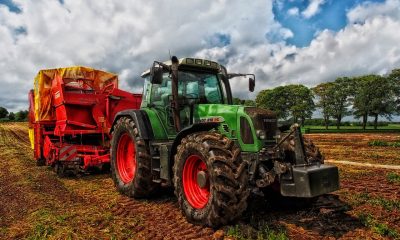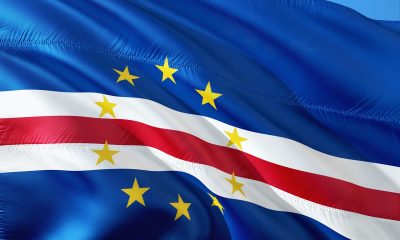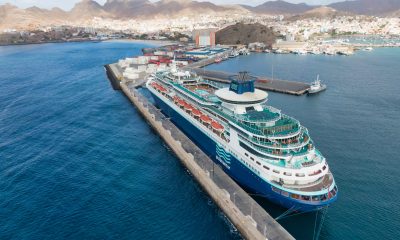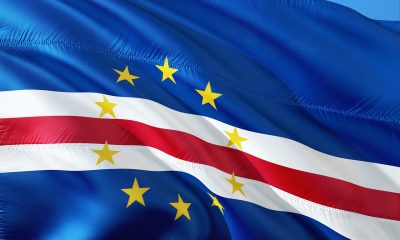Africa
Cape Verde Needs to Invest €700M Over 20 Years in Water and Sanitation
According to the head of the government, water and sanitation are “priorities” on the agenda for increasing the country’s resilience and achieving the Sustainable Development Goals (SDGs). The meeting, the first in the second mandate of the Government, has, among other objectives, the review and approval of the regulations of CNAS, the inclusion of the operators, and to make the sector’s perspectives.
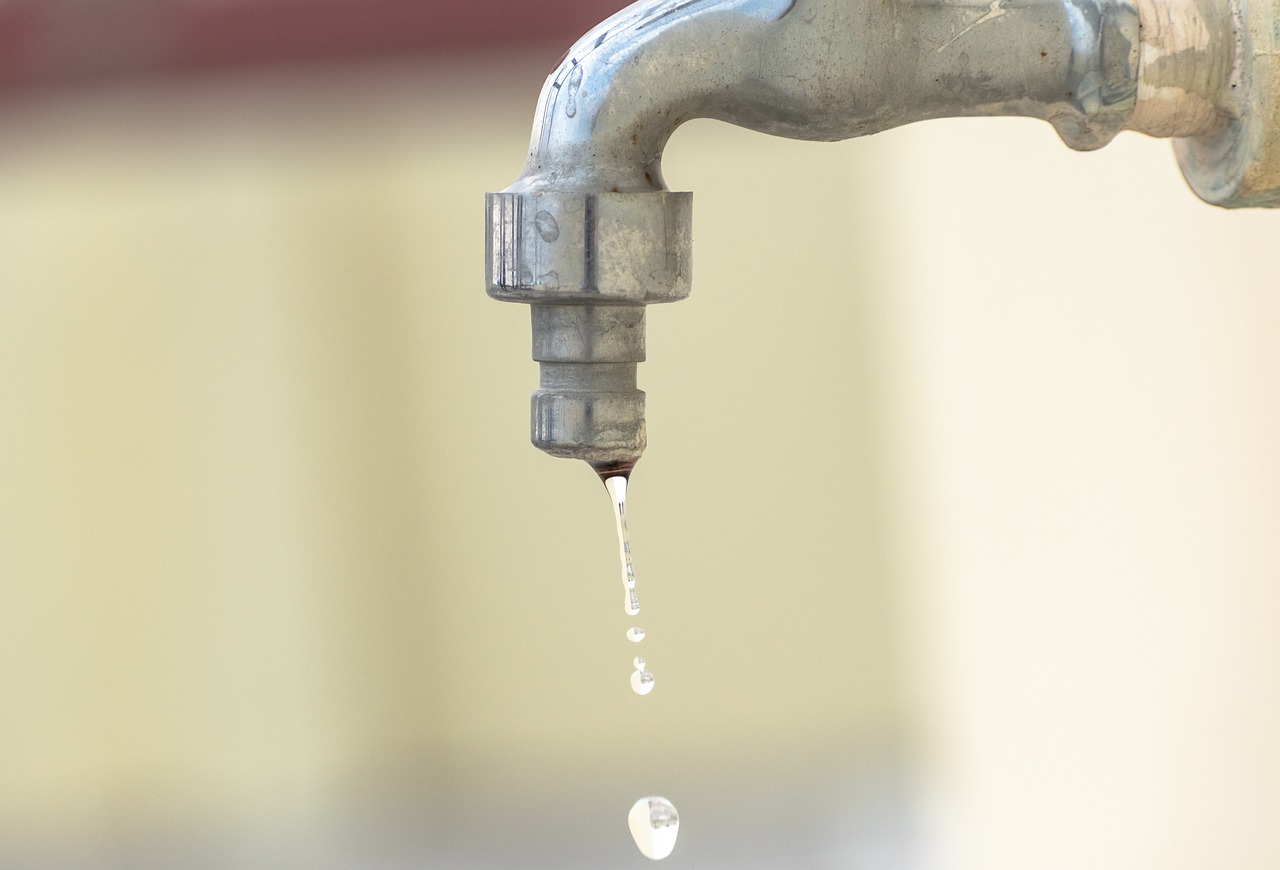
Speaking at the opening of the meeting of the National Council for Water and Sanitation (CNAS), held in Praia, Ulisses Correia e Silva said that the ambition is to gradually create sustainable bases for the country to reach quality levels of services equivalent to those of Organization for Economic Cooperation and Development (OECD) countries.
Read more on the subject and find the latest economic news from around the world with the born2Invest mobile app.
Solutions for water scarcity in Cape Verde
Referring that the Government’s program proposes to endow the country with an “advanced system of water supply and sanitation services”, Correia e Silva indicated the strategic commitments for the legislature, starting by increasing the current 62 liters of water per person per day to 90 liters and increasing the coverage rate of access to water through the public network from the current 85.5% for all families.
It also intends to massify access to the water and sewage network and to home sanitation facilities with investments, through the Environment Fund, in all the municipalities aimed at poorer and more vulnerable families and to ensure that the costs of water supply and sanitation services do not exceed, on average, 5% of the income of the most vulnerable families.
Also in localities where, due to orography or costs, it is impossible to install a public network, the Government wants to increase the proximity of the water supply to families within a distance (in time) of no more than five minutes, as well as improve energy efficiency and water efficiency.
The Prime Minister pointed out “important advances” of the sector in recent years, especially the improvement and quality of services provided, governance, and quality and transparency in technical and economic regulation, and highlighted some “fundamental instruments” in the sector.
“Cape Verde is currently a prestigious reference in leadership in global efforts in managing water scarcity in multiple uses, but above all, in agriculture,” he stressed, recalling the holding in the country of the first two world forums on Water Scarcity in Agriculture (WASAG) (2019 and 2023), in which the city of Praia was declared world capital of the forum.
With regard to water for agriculture, Ulisses Correia e Silva said that investments are underway for, by 2026, the country to reach seven million cubic meters (m3) of desalinated water and three million m3 of wastewater reuse for irrigation.
For this, he said that the strategy involves the diversification of irrigation sources using seawater desalination and the safe reuse of treated wastewater, the massification of drip irrigation with investment subsidies to farmers, and the allocation of water from boreholes, wells, and springs only for agricultural activity.
“The strengthening of the water/energy nexus has been strongly implemented in recent years. If in 2015 there were only 15 photovoltaic systems installed for pumping water, today the country has 120 systems,” he accounted, indicating that the goal is to equip 100% of water holes for irrigation with photovoltaic systems, an investment of €555 million (5.7 billion escudos).
The head of the government said that there is not a dramatic situation in water for agriculture, but a country with “strong climatic and environmental constraints”, with centuries of water shortages, and that has been exposed to severe droughts and the effects of climate change.
And according to him, water and sanitation are “priorities” on the agenda for increasing the country’s resilience and achieving the Sustainable Development Goals (SDGs)
The meeting, the first in the second mandate of the Government, has, among other objectives, the review and approval of the regulations of CNAS, the inclusion of the operators Águas de Santo Antão, Águas de São Nicolau and Água de Rega, and to make the sector’s perspectives.
For the Cape Verdean Minister of Agriculture and Environment, Gilberto Silva, water and sanitation is a “strategic sector” for the country, where he understood that it is “fundamental” to improve governance.
“As a result of the reforms carried out over the past few years, we can verify that Cape Verde is a country where the governance of the sector has improved a lot, but there is always room for us to reflect, adjust everything we have been doing in terms of governance and continue to be the example in the region and why not in the world,” outlined the minister.
__
(Featured image by balouriarajesh via Pixabay)
DISCLAIMER: This article was written by a third party contributor and does not reflect the opinion of Born2Invest, its management, staff or its associates. Please review our disclaimer for more information.
This article may include forward-looking statements. These forward-looking statements generally are identified by the words “believe,” “project,” “estimate,” “become,” “plan,” “will,” and similar expressions. These forward-looking statements involve known and unknown risks as well as uncertainties, including those discussed in the following cautionary statements and elsewhere in this article and on this site. Although the Company may believe that its expectations are based on reasonable assumptions, the actual results that the Company may achieve may differ materially from any forward-looking statements, which reflect the opinions of the management of the Company only as of the date hereof. Additionally, please make sure to read these important disclosures.
First published in Africa21Digital, a third-party contributor translated and adapted the article from the original. In case of discrepancy, the original will prevail.
Although we made reasonable efforts to provide accurate translations, some parts may be incorrect. Born2Invest assumes no responsibility for errors, omissions or ambiguities in the translations provided on this website. Any person or entity relying on translated content does so at their own risk. Born2Invest is not responsible for losses caused by such reliance on the accuracy or reliability of translated information. If you wish to report an error or inaccuracy in the translation, we encourage you to contact us.

-

 Business2 weeks ago
Business2 weeks agoLegal Process for Dividing Real Estate Inheritance
-

 Fintech13 hours ago
Fintech13 hours agoJPMorgan’s Data Fees Shake Fintech: PayPal Takes a Hit
-

 Fintech1 week ago
Fintech1 week agoPUMP ICO Raises Eyebrows: Cash Grab or Meme Coin Meltdown?
-

 Africa3 days ago
Africa3 days agoSurging Expenditures Widen Morocco’s Budget Deficit Despite Revenue Growth


